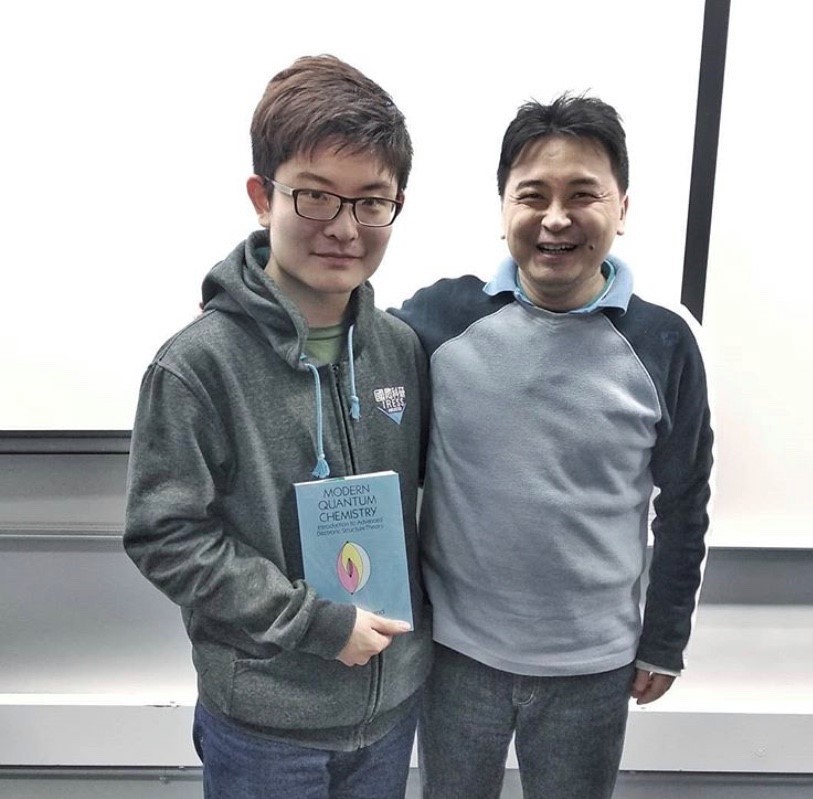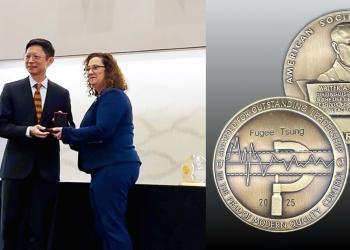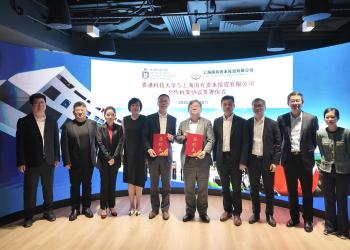Jump-starting Your Research Career
Achieving top scores of 5** in seven subjects in Hong Kong’s Diploma of Secondary Education (DSE) examination, Katherine LAI Man-Wai was unsurprisingly accepted by two international elite universities.

But to many people’s surprise, the young lady who always dreamed of becoming a scientist denied both offers and chose to study the International Research Enrichment (IRE) program at HKUST because she knows this unique program can offer her early exposure to research, essentially gaining a head start over other students who also want to pursue a research career in science.
Launched in 2013 by the School of Science, the IRE program offers high-flying undergraduates early opportunities to develop their research abilities by taking part in leading-edge international research.
“The unique offering is for our undergraduate students with a demonstrated passion to engage in first-hand scientific research, which is usually a postgraduate program around the world,” says program director Prof. LEUNG Pak-Wo, also Associate Dean of Science.
“The early and international exposure to world-class research gives students an edge when they apply for good postgraduate programs, which are very competitive globally,” he adds.
Read another related article: Understanding Therapeutic Value of Sociology
The program also allows students to experience a researcher’s life before they fully commit, which would entail a research journey of about 10 years, from postgraduate to being a faculty member.
The program has the same curriculum structure as a regular Science undergraduate program. What sets it apart is that students will be engaged with research groups under the supervision of professors in the Science School.
In addition, IRE students also benefit from a guaranteed exchange at a foreign university, admission to the Undergraduate Research Opportunities Program (UROP), and a summer research internship opportunity at a university or national laboratory overseas.
The highly selective program has a yearly intake of around 20 places and a similar number of places for transfer students after their first year of study. Interviews are compulsory. “It takes a lot of passion and grit to be a scientific researcher, so we hope to get students to choose this program because they are passionate about science, but not because it is competitive,” Prof. Leung explains. “The interview is a way for us to evaluate how passionate they really are.”
Both good grades and passion are equally key to entering the program, as scientists need to be genuinely curious about the world to consistently make meaningful contributions, comments Katherine, soon to enter Year 2 of IRE.
“Being curious means you want to find out how things work so bad that you proactively find answers, none of which a search on Google can help you with,” she says, adding that her curiosity and wonder about science stemmed from her accidental encounters of cosmic knowledge shared on social media platforms during junior high.
The physics major, currently researching into solid-state physics, has set her sights on publishing a paper in a scientific journal within the four-year program, the sooner the better. “Practically speaking, it will help to show I am a strong researcher when I apply for postgraduate,” she says.
Read another related article: Using Civil Engineering Mentality to Solve Real-world Problems

Most IRE graduates have received PhD offers from top-notch universities such as California Institute of Technology, MIT, Harvard University, Johns Hopkins University, University of California, Cornell University, and Oxford University, among others, to pursue research endeavors of their interest.
For chemistry major Dicky WONG Tak-Hin, who has been undertaking a research internship at the pioneering research university ETH Zurich since February, his plan is to further his studies in organic chemistry there after completing the final year at HKUST.
“I’ve been closely following the work of Prof. Erick CARREIRA at ETH for some time, so I came here to join his research group in February,” he says. Dicky wanted to follow this world-renowned organic chemist to conduct research into cancer drugs because he witnessed the pain of his friend who lost a close buddy to cancer. This experience ignited his passion for finding cures for cancer and other notorious diseases.
Being a committed researcher himself, Dicky has a word for prospective students who are wondering if IRE suits them. “Research to me is really about two things: literature review, which is the essential part of finding out what’s already been done on a topic; and search, which is about challenging ideas and forming new ones after putting in a lot of work. If this sounds interesting to you, IRE might be for you.”








